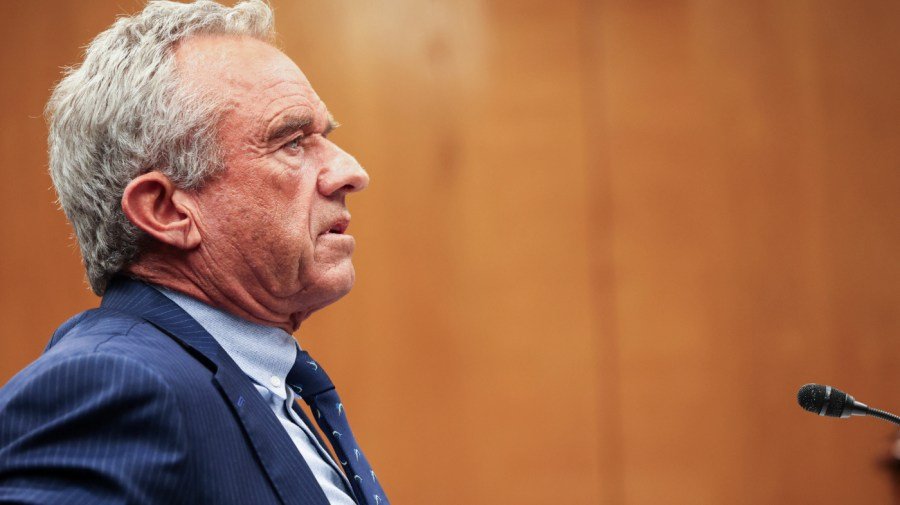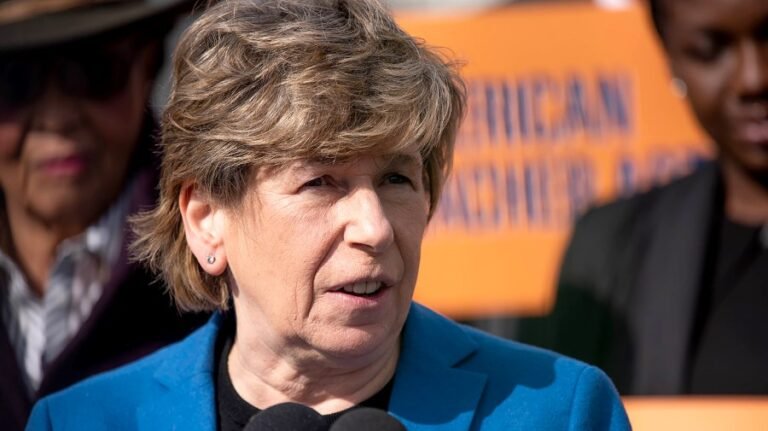
On Monday, Health and Human Services Secretary Robert F. Kennedy, Jr. wrote in the Wall Street Journal that “Vaccines have become a divisive issue in American politics,” and “The U.S. faces a crisis of public trust.”
“Whether toward health agencies, pharmaceutical companies or vaccines themselves, public confidence is waning,” Kennedy warned.
What was his solution? He abruptly fired all 17 members of the Centers for Disease Control’s Advisory Committee on Immunization Practices, the committee that has assured vaccine safety in the U.S. without political interference since 1964.
Predictably, he is now repopulating the panel with like-minded individuals who will probably make recommendations that diverge from the mainstream medical and public health community and align with his longstanding anti-vaccine vision.
The Advisory Committee on Immunization Practices typically includes infectious disease, immunology, medical and public health experts who develop recommendations on the use of vaccines in children and adults. These members adhere to strict conflict of interest guidelines, and the meetings are open to the public.
The panel reviews data related to both new and established vaccines using a detailed, evidence-based methodology in making recommendations. This process ensures that decisions are based on data and facts and are free of political or financial interests.
Kennedy’s move marks a landmark victory for the modern and evolving anti-vaccine movement, which now has a front seat in the Trump administration.
Today’s anti-vaccine movement began percolating in 1998 with a faulty scientific report linking the measles vaccine to autism. Despite the retraction of the report and numerous scientific studies showing no support for the vaccine-autism link, this notion has gained traction and now permeates American politics, undermining basic pediatric healthcare.
Over the past five years, largely due to the politics surrounding COVID-19, anti-vaccine sentiment has combusted. It is staggering to reflect on its recently growing scope.
With thousands of weekly deaths and mass societal disruption from COVID-19, our nation clamored for a vaccine as a pathway to normalization. The Trump administration launched Operation Warp Speed in May 2020, with an initial investment of $18 billion to develop solutions.
The nation breathed a sigh of relief when COVID-19 vaccines became available in December 2020, as our pathway out of the pandemic was before us. These feelings were reminiscent of the jubilation following Jonas Salk’s development of the polio vaccine 70 years ago, which put an end to a paralytic illness that affected about 16,000 children each year in the U.S.
Although some politicians may overlook this fact, both Republican and Democratic leaders lined up to promote and extol the benefits of the COVID-19 vaccination when it became available. Our nation was politically unified over the first half of the year after the vaccines became available, and we watched death rates fall.
However, in April 2021, shortly after the Biden administration actively promoted COVID-19 vaccines, many Republican governors backed off from their promotion.
Instead, several supported the notion that it was better to get immunity by infection rather than vaccination. Some also endorsed the practice of contracting COVID-19, followed by the use of monoclonal antibodies, rather than getting vaccinated, a strategy that was significantly more expensive and riskier.
With fewer Republicans taking the vaccine, by the summer of 2021, the most significant risk factor for death from COVID-19 was not necessarily age or underlying medical condition, but whether you were a Republican or Democrat, leading to the notion of “Red COVID.”
This was “the moment the anti-vaccine movement had been waiting for,” as it hitched itself to Republican politicians, leading to a significant spillover effect onto other vaccines. Anti-vaccine politicians, including Kennedy, received millions of dollars in campaign contributions, making routine childhood vaccinations a political issue rather than a health issue.
We are now in a situation where the politicization of COVID-19 vaccines and the false attack on other vaccines now dominate news, leaving the public confused and healthcare providers frustrated. Mixed messaging from the Department of Health and Human Services, along with the tepid federal response to the measles outbreak currently affecting several states, reveals an inconsistent approach that does little to reassure citizens.
Sadly, this messaging occurs when parents are questioning vaccinating their children more than ever before, and vaccination rates are declining.
Now he says the justification for firing the vaccine panel’s members is a lack of public confidence in federal vaccine guidance. Thus, we are in a situation where the fabricated narrative of anti-vaccine proponents with loud political bullhorns is being used to destroy a foundational scientific group that has kept us safe from vaccine-preventable diseases for decades.
If new federal recommendations are implemented, it will prompt the medical and public health communities to issue their own guidelines, which may not be the same. Two weeks ago, following Kennedy’s recommendation that healthy children and pregnant women should not receive the COVID-19 vaccine, this scenario played out as the CDC and prominent medical organizations issued differing guidance.
This contributes to public uncertainty and will hurt children and their families, as growing numbers of unvaccinated children will needlessly be harmed, hospitalized or die from vaccine-preventable illnesses.
However, that is not all that the medical and public health communities need to fear. We now regularly see the Trump administration retaliate against those who do not align with the administration’s policies in law firms, universities or state governments.
We can also anticipate that funding will fall for longstanding federal vaccination programs, and the Department of Health and Human Services will remove certain vaccines from mandatory insurance payment, limiting their uptake. Thus, a growing number of children will be harmed, hospitalized, and die from vaccine-preventable illnesses.
As the medical community lines up to condemn the recent firings and begins to release vaccine recommendations in opposition to Health and Human Services, it needs to prepare itself to answer the question: What happens when we, and the way we practice medicine, become the next target of the Trump administration?
Scott Rivkees, MD, is a pediatrician and professor of practice at Brown University. He is the former state surgeon general and secretary of Health of Florida.


